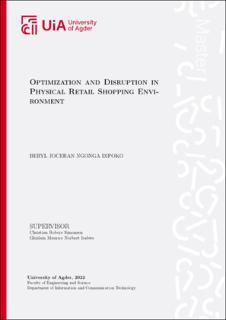| dc.description.abstract | Every year, queues cost brick-and-mortar retailers billions in lost revenues, and
consumers are growing more impatient about standing in line. To survive the
competition from e-commerce, stores need new innovations that can help kill
queues (Worldline, 2020).
If you have ever waited in a long line at the grocery store, for luggage at an
airport etc. then you have an image of it and you know the pain it brings when
you have to wait for someone.
Hence from these we understand that it is important to optimize checkout
at retail environment(store or complex) and for this to be 100% efficient, the
system to be proposed needs to be efficient and effective.
Bringing us to this research that we decide to conducted, which we shall solve
it by applying our main theory which is the Queuing Theory. From these
theory we decided to bring out two methods in other to solve this, firstly we
will need to synchronise the result of our research (i.e. The System) with the
retail environment for this optimization to be optimal, but from our research
we also discovered that there are cases where the retail environment will not
collaborate with us, hence looking at this situation, we decided to implement a
digital disruptive system for it to be used at retail environment.
The slight difference here is that, the retail environment(store or complex) will
not be in collaboration with us and hence we needed our system to be scalable
and adaptable for it to provide the ability to the system to work without the
needs of collaborating with the retail environment(store or complex).
Doing both of these cases, it will help us to increase the optimization of shopping
in retail environment (store or complex).
The main aims of our research was to Optimize Queue in Retail Environment
both in Rwanda and Norway since many people are still doing their shopping
physically hence we did research on 4 theory which help us through out our
research. Namely:
1. Queuing Theory
2. Microservices Theory
3. Software Design Theory
4. Qualitative Research Theory | |
